When you read from global memory, the data are searched first in the L1 cache (high bandwidth, 1.600GB/s on Fermi, but limited in size, 48KB on Fermi), then, if not present in L1, they are searched in L2 (lower bandwidth, but larger than L1, 768KB on Fermi) and, and finally, if not present in L2, they are loaded from global memory*.
When a global memory load occurs, the data are moved to L2 and then to L1, so to be able to access them in a faster way next time a global memory read is required.
Possibly, such data are evicted by a subsequent global memory load, possibly not. So, in principle, if you are reading "small" chunks of data, you do not need to necessarily force the data to be located in the shared memory to access them next time in a fast way.
Take into account that, on Fermi and Kepler, shared memory is made by the same circuitry of the L1 cache. You can then see the shared memory as a controlled L1 cache.
You should then force the data to reside in the shared memory to be sure that they reside on, say, the "fastest available cache" and you do it whenever you need to access those same data a multiple number of times.
Note that the above is the general philosophy behind global memory transfers. Implementation details can differ depending on the underlying architecture.
*Il should be noticed that the L1 cache line could be disabled by a compiler option. This is useful in terms of performance for random access data patterns.
